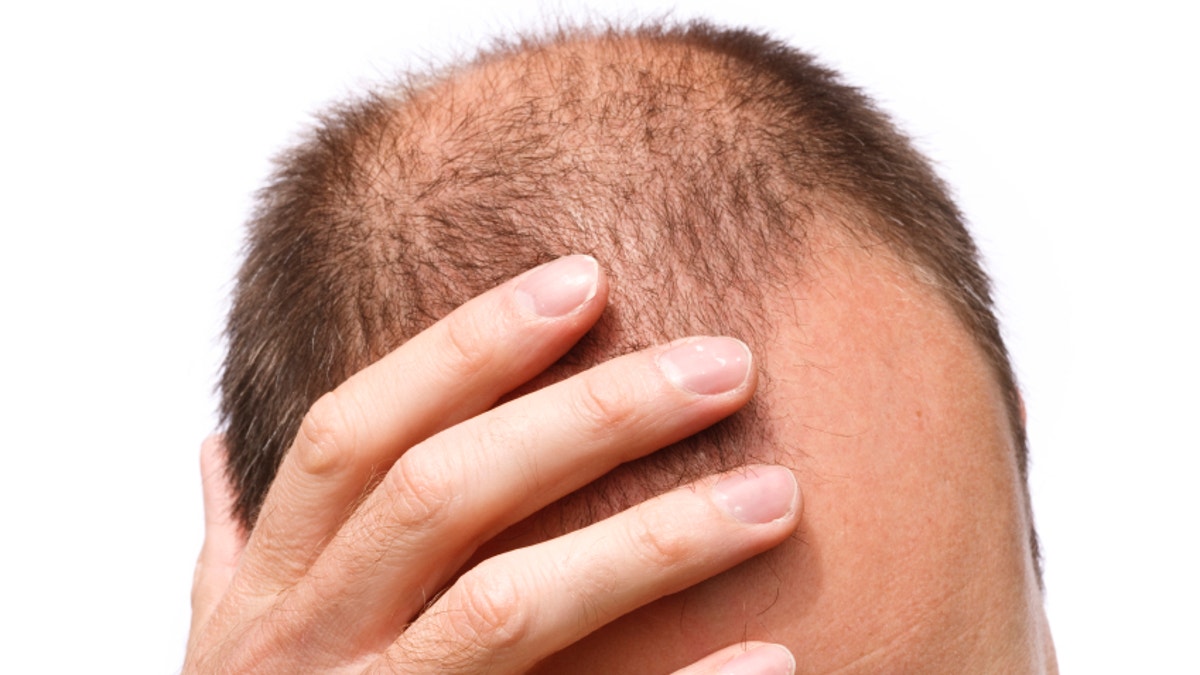
Man expressing stress, worry or depression; isolated against a white background (Paul Maguire)
Men who take finasteride (Propecia), a drug commonly used for male pattern hair loss, may be at increased risk of depressive symptoms and suicidal thoughts, according to a new study from George Washington University.
In 2011, the same researchers found finasteride may cause long-lasting sexual dysfunction. While impotence and related sexual problems are commonly known side effects of finasteride, the researchers said the symptoms may in fact be irreversible in some users. Twenty percent of the men interviewed reported sexual dysfunction more than six years after they stopped taking the drug.
This latest study builds on those findings by looking at 61 former users of finasteride who experienced persistent sexual side effects lasting for more than three months. Among the participants, 11 percent suffered from mild depressive symptoms, 28 percent had moderate symptoms, and 36 percent had severe symptoms. Additionally, 44 percent reported having suicidal thoughts.
In comparison, among a control group of 29 men who had male pattern hair loss but who had never taken finasteride, only 10 percent had depressive symptoms, and three percent reported having suicidal thoughts.
All of the men involved in the study were otherwise healthy, with no prior history of sexual dysfunction, medical conditions, psychiatric conditions or persistent use of prescription medications. Finasteride is also prescribed for symptoms related to benign prostatic hyperplasia, or enlarged prostate.
“I definitely think this study has very important messages when you’re looking at something like suicide and suicidal ideations,” lead researcher Dr. Michael Irwig, an assistant professor of medicine in the Division of Endocrinology at the George Washington University School of Medicine and Health Sciences, told FoxNews.com.
“After all --how many deaths from a medication do you really need to be considered important enough and to change [warning] labels?” he added. “Medications have been pulled from the market in the past even after just a few patient deaths.”
According to Irwig, his interest in finasteride’s side effects was sparked after some of his former patients complained of long-lasting sexual dysfunction. After an online search, he found many more men who reported similar issues.
“We set out to study these men, and while doing that initial study, a lot of the men told me they were having depression and memory problems and other cognitive changes,” Irwig explained.
Irwig speculated the emotional and cognitive changes are due to the way finasteride works on the brain. Finasteride is in a class of medications known as 5-alpha reductase inhibitors, which block the production of a certain hormone.
“Certainly, sexual dysfunction is linked with depression,” Irwig said. “But I think there’s something else going on. Finasteride blocks an enzyme in the brain and other organs that control the levels of neuro-active steroids released… It’s been shown that men and women who have depression also have lower blood levels of neuro-active steroids.”
Irwig recommended further research should be done to investigate these findings, and that prescribers and potential users of finasteride be aware of potential nervous system-related side effects of the drug.
In a statement to FoxNews.com, a Merck spokesperson disputed the study’s claims, saying: “Merck believes that PROPECIA (finasteride) has demonstrated safety and efficacy profiles and that the product labeling appropriately describes the benefits and risks of the drug to help inform prescribing [depression is listed as a potential risk on the label].
“We encourage patients to talk with their doctor if they have any questions or concerns about their health, or about PROPECIA,” the spokesperson added.
The study was published in the Journal of Clinical Psychiatry.








































